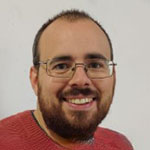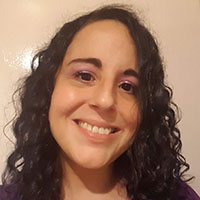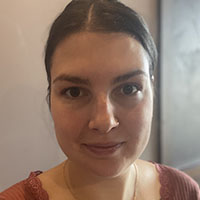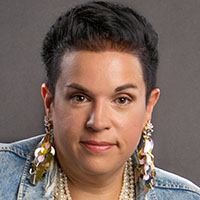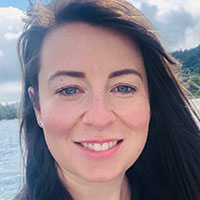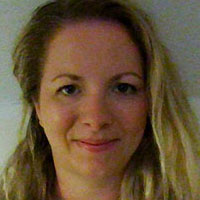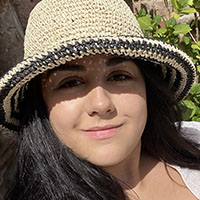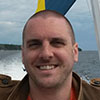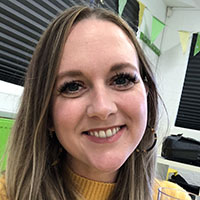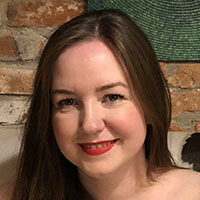Of all the times to sell your home and set off on a life of perpetual world travel, during a global pandemic doesn't seem ideal. And yet this is what we did during the summer of 2021 after selling the house in the spring. Were there risks? Yes. Was travel during the Covid era complicated? Yes. Did we catch Covid while traveling? Unfortunately, yes. Do I regret our decision? No. Despite the extra hassle of crossing international borders during the pandemic, the many Covid tests in foreign countries, masking on flights, and needing medical care in a foreign country, I honestly don't regret our decision.
My husband and I had already decided to become nomads when Covid took over the news in January 2020. We'd just gotten married, and the timing seemed right. We have six adult children between us but no grandchildren in 2021. Our parents were in their 80s, all in good health and living independently. I was between jobs, and my husband had retired early. Our health was good. We weren't wealthy by US standards but thought we could swing it financially if we traveled and lived frugally. The time was right to take a risk. All systems go!
And then Covid rolled across the world like a disease tsunami and changed everything for everybody. We were hugely grateful that none of our family or friends lost a battle to the disease. As hospitals groaned under the weight of Covid and the global death toll mounted, our travel plans screeched to a halt along with most international travel. Borders closed, and fear reigned largely unchallenged. The world we intended to see suddenly looked a lot less welcoming and a lot more dangerous.
Airplane travel was a particularly alarming prospect. My brain helpfully supplied fear-stoking mental images of being trapped in a Covid-infested tube in the sky for hours. As 2020 turned into 2021, some countries opened their borders for tourist travel but imposed risky regulations, such as mandatory isolation at government-established quarantine sites for Covid-positive travelers. What if we were negative before boarding but tested positive on arrival? Would I be involuntarily removed to an insanely-expensive Covid hotel or facility where I didn't speak the language and didn't know when I'd be released? Worse yet, what if my husband was taken away, and I was stranded in a foreign country, worrying about his health and unable to get any answers?
Once my imagination started down this road, it knew no limits. What if we got Covid and needed emergency care in a foreign country? Could we find it without knowing the language? How would we communicate with doctors? Could we even get medical care in a country whose health care system was already overburdened by Covid cases among its own citizens? What if we were vaccinated and careful with masks, but a new virus mutation made all our precautions worthless?
I was frozen, unable to proceed in any direction. I wouldn't get the house ready to sell, but I didn't want to find a new job either. That seemed tantamount to admitting that I'd given up on our nomad life. Having found ourselves in a rare window of opportunity at ages 55 and 60, delay now meant the window might never open again. Parents age and need care, grandbabies come, personal problems arise, and finances shift. It was now or, probably, never.
By the spring of 2021, after many discussions, extensive research, and weighing risks, we decided to take the leap. The house was nearly ready for market when the perfect buyer appeared virtually out of thin air. My piano and cute little car also quickly found new owners. It seemed God was encouraging me to let go of fear and take flight. My husband, steadier and less impulsive than I, never really wavered.
We would avoid countries with mandatory isolation at Covid sites and instead choose countries with fewer cases in the population. We spent many hours online reviewing global Covid data sites and US State Department travel advisories. Mexico looked good to us, with automatic tourist visas of 180 days and a stoplight system for rating each state by the levels of Covid present. We chose Puerto Vallarta, a charming seaside town in Jalisco state, which was green to indicate low levels of Covid. But, of course, one feature of stoplights is that they change constantly. Shortly after we arrived in Puerto Vallarta, Jalisco's safe green turned to risky orange, but there was no turning back then. The house and all our stuff - furniture, books, clothes, dishes - were sold, given away, or stored.
And we loved Puerto Vallarta. We found a little one-bedroom apartment a block from the beach, with a motherly landlady who lived downstairs and a balcony framed by lush green leaves. We'd been vaccinated twice and followed the same cautionary protocols in Mexico that we did at home. Masking in public, sitting beside open windows to maximize ventilation, and using hand sanitizer at the grocery. We bought an oximeter to measure our oxygen levels in case we got sick, but we stayed healthy.
After a third Covid shot in December, we spent 2022 in Turkey, Morocco, Spain, Portugal, and Croatia. My retired-pharmacist husband carefully wore an N-95 mask - the tight ones with two sturdy elastic straps, thick material, and a metal strip over the nose - through all the airports and on our flights. I wore an N-95 occasionally but wore the cheap ones more often.
Flying across all these borders, including countries where we made international connections and DIY connections (known as being "in transit"), required a lot of planning and care. Many nations required us to complete health declaration forms affirming our symptom-free state. Nearly all countries required Covid tests to enter. Still, there was no uniformity about which test (PCR or antigen) was required. Visitors from various nations often were under different requirements. Sometimes proof of vaccination was needed, and sometimes that proof was an acceptable alternative to a negative Covid test received within 24-48 hours of departure. Sometimes the virtual Vaccination Cards with QR codes on our iPhones were sufficient proof, and sometimes only the paper CDC card would do. Though I wondered what foreign immigration officials made of the English scribble-scrabble on our little cards, we were always passed through.
Figuring out each nation's entry requirements was challenging. The US State Department website was usually our first best source of updated information. Still, we often wound up on the government sites for foreign nations, squinting at our laptop screens through the Google Translate app on our phones. There was tons of misleading, outdated, and cryptic information online that purported to prepare us to cross international borders, so we had to be skeptical and keep looking until we found reliable information.
Sometimes we had to change our travel plans because a country's regulations were too complicated or uncertain to comply with. Cyprus was on our radar at one point because of its gorgeous beaches and fascinating history. Try how we might, however, we couldn't figure out a way to reconcile its complicated and prickly political division into the Turkish Republic of Cyprus and the Republic of Cyprus in the south, the somewhat incompatible Covid policies of these two nations, and the astonishing difference in airfare cost that this separation made. We spent days researching whether we could fly into Turkish Cyprus, take a taxi to the border, and then walk into the Republic of Cyprus while dragging our luggage across the border station. The information online was sketchy and based only on people's pre-Covid personal experiences. The two governments of Cyprus basically ignore each other, so there's no official way to cross a border that officially doesn't exist while proving you aren't bringing Covid. Ultimately, we regretfully gave up on Cyprus and went to Essaouira, Morocco instead, where I came down with some kind of crud that resembled Covid.
After I coughed my head off and had miserable malaise for a few days, my husband took me to a local lab for a Covid test. We stepped out of the taxi in front of a sleepy strip of squat, concrete buildings dotted with Moroccans in desert robes and hoods who looked to my American eyes like they'd stepped out of the Old Testament. A young Moroccan lady in the lab (basically a little cubby carved out of one of the muddy buildings) administered the test after we held up our phones to show the Arabic translation for "Good afternoon. How much for Covid test?" Instead of the eye-watering brain swab we'd received in the US, the Moroccan lady dabbed ever so gently and politely, not venturing more than a half inch into my nose. I appreciated her delicacy, but it made me skeptical of my negative result. But maybe it was just a bad cold. My husband didn't get sick, and my illness eventually resolved on its own.
When we returned to Tennessee in late November 2022, most stringent international entry requirements and masking mandates had worn off. As we boarded Ryanair for one of our connecting flights home, I overheard some anxious masked passengers alert a flight attendant that another passenger's mask was around her neck rather than over her mouth.
"We can't do anything about that. We're not the police," the flight attendant shrugged. The unmasked passenger unhurriedly moved her mask into place.
After yet another vaccine (our 4th) in December, we headed out again for our third year of full-time travel. We flew into Quito, Ecuador, on New Year's Eve and hopped to Cuenca on January 1, intending to settle in for several months. By the next day, I felt awful. Two days later, my husband felt even worse. This was it. Covid. Full strength, with extra viral power for maximum worry. I tested negative again within a week, but my husband wound up in the hospital. A month later he's finally testing negative but is still feeling the effects. We're still walking slower, and a trip up the stairs to our third-floor apartment leaves me breathless.
The story of his illness in an unfamiliar foreign city where we don't speak the language is for another day. This post is long enough already, but suffice it to say that his medical care was excellent, his doctors and nurses were skilled and compassionate, the cost was very low by US standards, and we have health insurance for overseas medical care. As worrisome as his illness was to us, it was probably worse for our families back home. They couldn't see his condition for themselves or talk to his doctors. He was never at death's door, but his symptoms were acute, and I'm incredibly grateful to have him back on his feet and getting stronger again.
So, though we dodged the risk for 18 months, Covid eventually caught up with us. This begs the question: Were we foolish to travel full-time during a pandemic? Neither of us has expressed regret about that choice, and we haven't considered giving up our nomad lifestyle. Travel during Covid required additional research and a fair bit of hassle to comply with different countries' requirements. Still, the virus is everywhere, including back home.
My husband, ever the philosopher, said, "We knew if we traveled for 10 years that we'd probably need medical care at some point. We expected that." It's all part of the adventure. And now, please excuse me. We've got a country to explore!
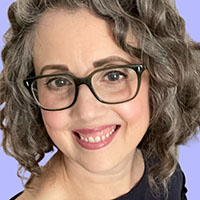 Julie
Julie
